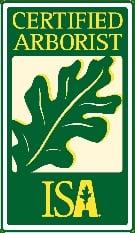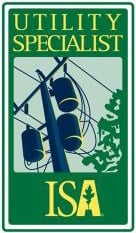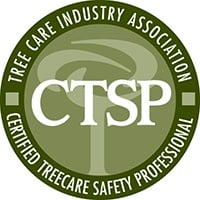You love your crape myrtles for their impressive blooms. It's also nice that they're pretty low maintenance. Unfortunately, there's a relatively new insect in the Carolinas that can ruin the very same features that make crape myrtles so popular: crape myrtle bark scale.
If you have crape myrtles in your yard, you need to become familiar with this new pest that could affect the health and beauty of your trees.
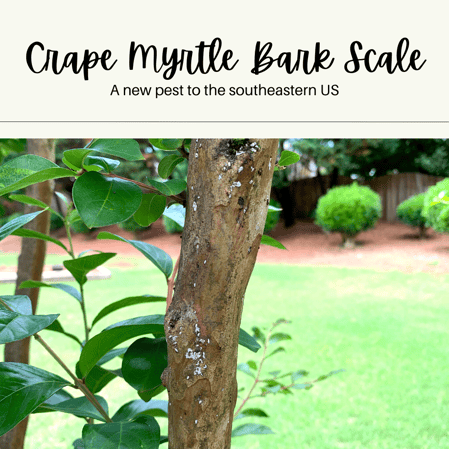
Crape myrtle bark scale: A short history
Bark scales are similar to soft scales in that they excrete honeydew, a sugary, sticky substance that can cover your entire tree and anything underneath. But bark scales are in a different scale insect family.
Crape myrtle bark scales, originally from Asia, were first spotted in Texas in 2004. Since then, they've made their way to Oklahoma, Arkansas, Louisiana, Mississippi, Georgia, and Virginia.
We've already spotted these scales throughout neighborhoods in Concord, Charlotte, and Lake Norman, NC.
How will you know crape myrtle bark scales have invaded your trees in Charlotte, NC?
Crape myrtle bark scales are 1-2 mm in length and will appear as white or gray, waxy crustations on your tree's trunk or branches. As their name implies, they live strictly on bark, so you won't see them on foliage. They tend to congregate in branch unions and pruning sites.
Along with the crustations and honeydew we've already mentioned, you may also notice:
- Black sooty mold, which grows on the honeydew
- Premature bark peeling
- Fewer flowers and smaller flower cluster size
- An overall reduction in vigor
A crape myrtle bark scale infestation will also cause the tree to leaf out later than your healthy trees.
Check out our Tree Bugs page for more information on bark scales and other scales that could be attacking your trees.
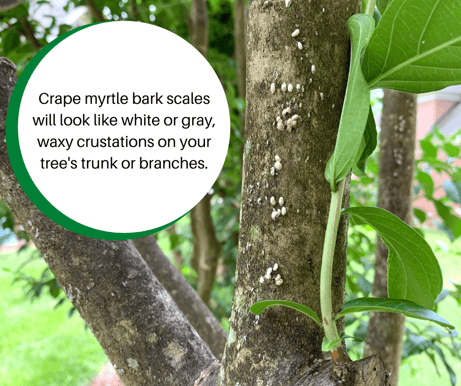
Your crape myrtle bark scale treatment options
You have a few different options when it comes to treating crape myrtle bark scale, and our experts can help you figure out which one makes sense for your specific needs.
Soil injection and basal bark spray treatments start controlling scales in 2-4 weeks and last for 6-9 months. We also offer foliar spray treatments that can start controlling scales in 1-2 days and last for 3-4 weeks.
One thing to note: Aphids also excrete honeydew. One of our professionals can help determine which bug you're dealing with and what the right treatment should be.
If you're seeing signs of crape myrtle bark scales, we're here to help. Your area's arborist representative will meet you on-site and provide insight as to what's going on with your trees.
Like what you just read?
Then you'll love this: Uninvited Visitors: Woolly Aphids


